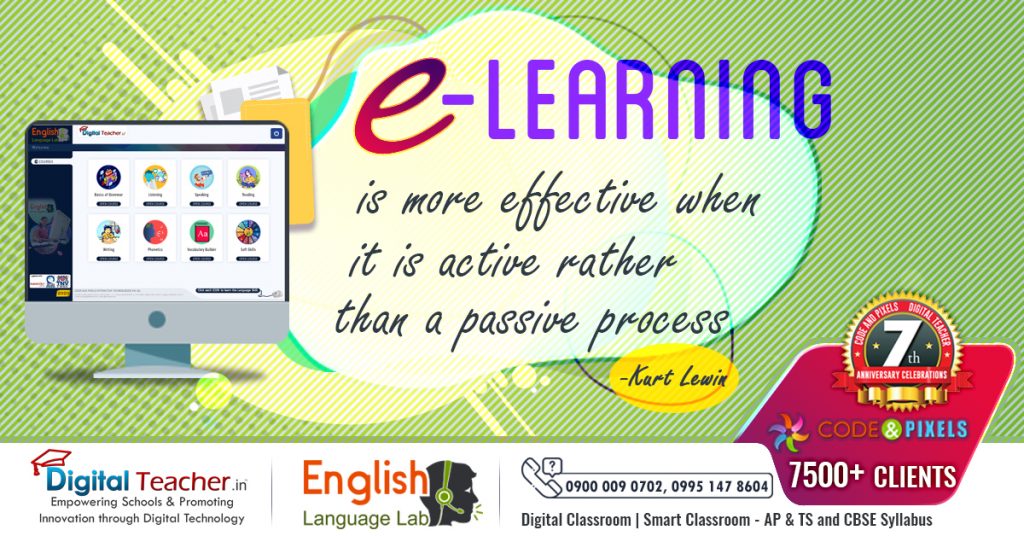CBT (Computer-Based Training) and eLearning Explained In short, imagine studying with a clever robot instructor who adapts to the way you learn and uses useful resources such as animations, games, and simulations. That’s how CBT works! It is an innovative way of learning that follows computers instead of books and lectures.
CBT started in the 1960s when the first automated education programs were launched. CBT has grown in combination with innovations in technology, embracing adaptive learning, multimedia, and interactions. CBT differs from eLearning, an additional term that covers multiple digital learning techniques. CBT focuses on training delivered using computer-based learning.
What is CBT?
Instead of lengthy textbooks and long classes, CBT teaches you to use computers and the internet. Consider interactive activities, entertaining films, exciting tests, and tasks that seem like challenges rather than jobs. You learn at your speed, and at any time, anywhere!
Understanding Computer-Based Training (CBT):
CBT, or computer-based training, is a dynamic method of education that uses digital technology to offer learning materials. When compared to traditional schools, CBT utilizes computer technology to help with learning, providing students with a more adaptive and dynamic learning environment. This technique combines a diverse set of teaching tools, including interactive modules, visuals, exercises, and tests.
The Difference Between eLearning and CBT:
Even though CBT and eLearning are commonly used simultaneously, it is important to understand the primary differences between them. Digital learning, or eLearning, is a more general term that covers CBT and other digital learning methods. Computer-based training (CBT), on the other hand, is training that is specifically delivered using computer-based tools. CBT is simply an extension of eLearning, with a particular focus on computer-based training.

How eLearning is different from Computer-based Learning?
eLearning is a broad term that covers all forms of digital learning, including CBT. However, CBT is unique in that everything takes place on a computer, such as a specific app or website. Consider it eLearning’s skilled in technology!
Where can you access CBT?
It is used by businesses to teach employees, hospitals to educate physicians and nurses, schools to make classes more engaging, and even the military for realistic training simulations. With CBT, the future of learning looks even brighter! Consider machine learning that adapts to your learning style, computer simulations where you can practice skills in real time, and bite-sized learning modules that fit into your busy daily life.
The Development of Computer-Based Training (CBT):
CBT started in the 1960s with the introduction of the first computer-assisted instruction packages. These early versions enabled the development of more powerful CBT systems that we use today. CBT Computer-Based Training combines adaptive learning approaches, multimedia, and engagement as it changes together with technological devices over time.
- Microlearning Modules: Microlearning modules are short, focused learning modules that enable you to quickly learn anytime, anyplace.
- Data Analytics: Digital analytical tools assist enterprises in gaining information about student performance, engagement, and preferences, allowing CBT programs to be continually developed.
The Future of Learning with CBT looks even easier! Consider computers that adapt to your learning style, online courses where you can practice skills in real-time, and this creative method could change your education and skill development modules that fit into your busy lifestyle.

CBT Used in Various Fields & Benefits with Examples:
Any software that allows businesses to build, deliver, and track computer-based training courses, or CBT, is considered computer-based training. Computers are a vital feature of many businesses and organizations.
Computer-based training software enables businesses to move employee training away from the classroom and into a more flexible and engaging online environment. These systems, which utilize in-house or third-party eLearning courses, enable managers and company instructors to build unique learner paths, mandate course picks and learning speed track employee growth, and more. Here, we provided the list of CBT has found applications in many different types of fields.
- Company Employee Training: CBT has become more significant in staff training programs in the business sector. companies utilize CBT to improve employee abilities in a variety of ways, including onboarding programs and ongoing skill development.
- Education: Remember those dull guides and long lectures? by CBT! Computer-Based Training Software (CBT) is being used in schools to develop interactive courses, interactive tests, and even virtual classrooms where students from all over the world can study. It’s as if you have a magical learning gateway that makes studying enjoyable and quick!
- Information Technology (IT): The computer world is like an exciting ride; new things appear all the time! IT workers must keep ahead of the line, and CBT (Computer-based training) assists them in doing so. They may utilize CBT to study the most recent programming languages, security methods, and other technological terminology in their own time and comfort.
- Army & Defenses: CBT is used in an army to protect our soldiers well-protected and training is important. CBT assists with this by giving actual situations in which individuals may learn how to handle machinery, make tricky choices, and even practice for unsafe situations in a safe atmosphere. It’s like having a virtual training session that prepares them for everything!
So, the future of CBT – Computer-Based Training is all about personalizing, engaging, and successful learning. It’s like combining the greatest elements of video games, interactive applications, and your favorite professors into one amazing learning head! Prepare to explore, experiment, and have fun as you learn new skills and information!
